People Who Grew Up Poor Usually Keep These 11 Things In Their Homes
Experiencing financial struggles while growing up can follow you into adulthood.
 Dean Drobot / Shutterstock
Dean Drobot / Shutterstock When someone has grown up with financial insecurity, it is common that they will adopt certain financial habits in adulthood. Learning to be more frugal and holding onto usable items is a result of the psychological patterns that follow individuals who grew up with these struggles.
Even when they no longer have to be as money-conscious, these patterns will, in a way, force them to be. It isn’t a cycle that can be broken by financial security. There is a sense of guilt that comes from spending on things that are viewed as unnecessary, and this usually presents itself through the things these individuals fill their homes with.
People who grew up poor usually keep these 11 things in their homes
1. Mismatched furniture
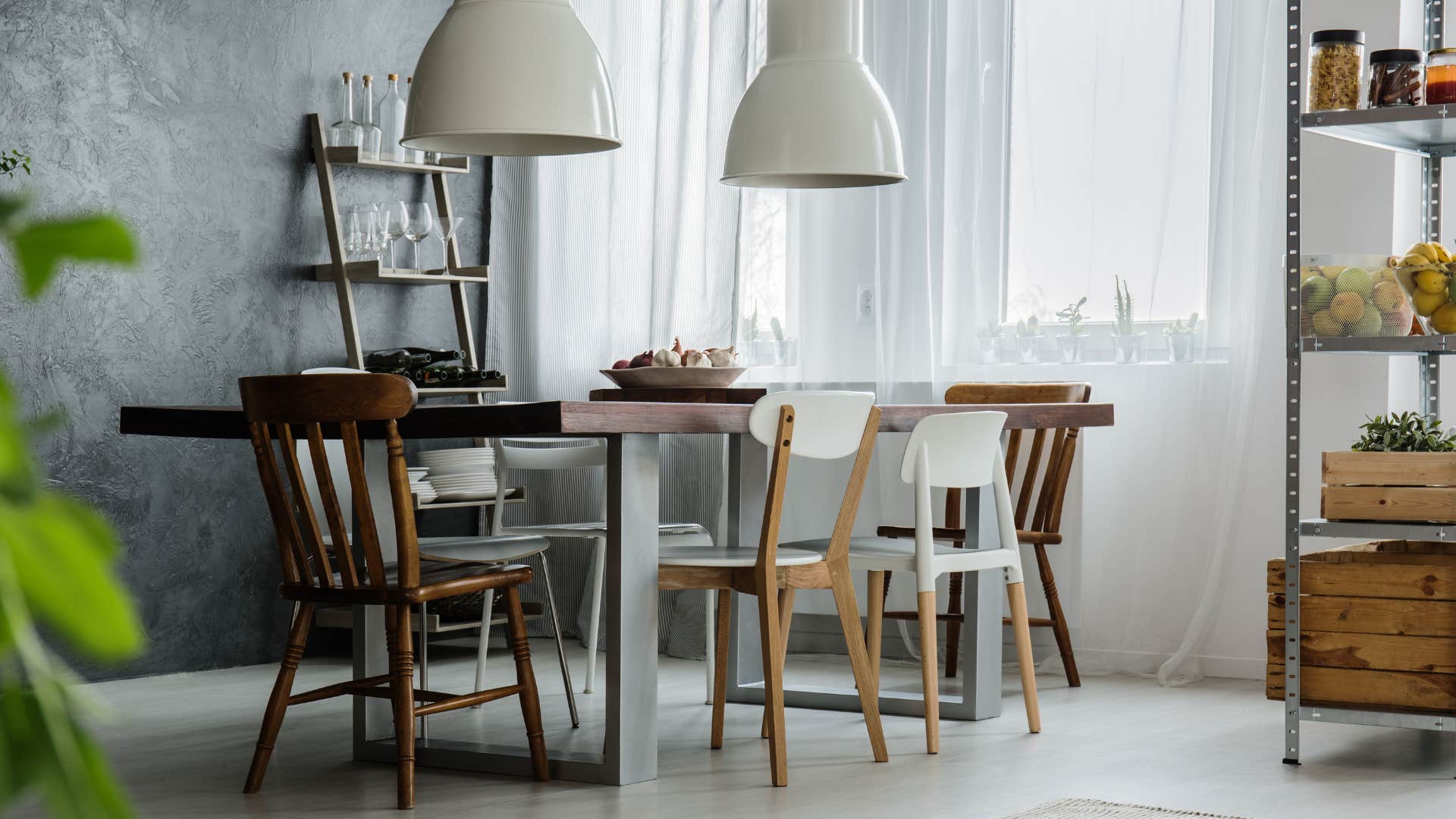 Ground Picture / Shutterstock
Ground Picture / Shutterstock
When people fill their homes with mismatched furniture, there is a possibility that they may have grown up struggling with financial insecurity. Instead of prioritizing the appearance of their home and the cohesiveness of their furniture, they will choose to prioritize necessities, like food and shelter.
If they grew up struggling financially, they are likely programmed to keep a tighter budget even if it is no longer a requirement. They will choose to quickly fill the need for furniture by buying second-hand furniture that may not match completely, but it does get the job done.
2. Old containers
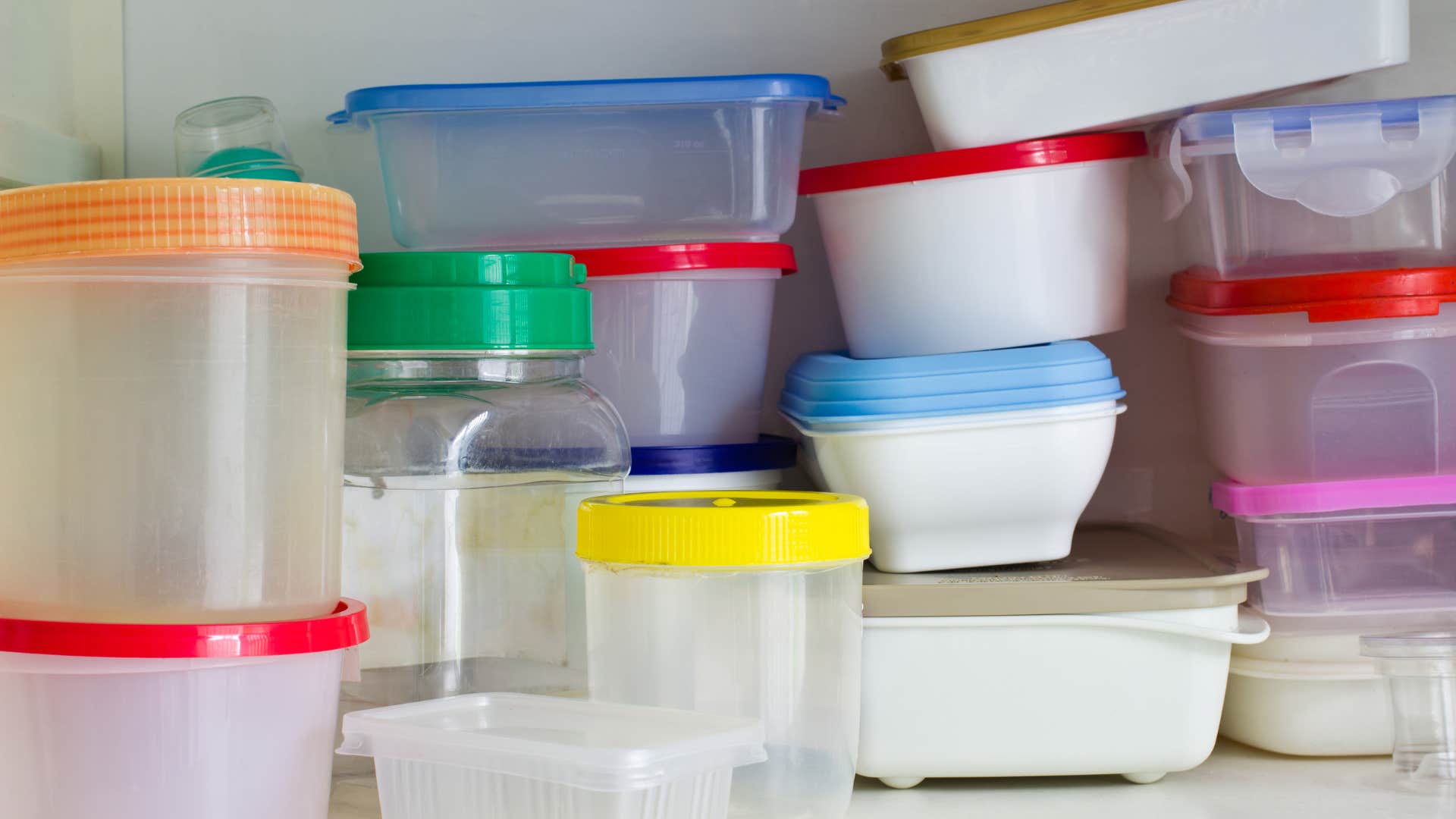 patpitchaya / Shutterstock
patpitchaya / Shutterstock
Instead of creating an extra expense, many people who grew up financially insecure will choose to keep old containers and Tupperware rather than purchasing new ones. The psychological patterns that develop when someone has gone through a financial hardship will cause them to continue practices that they did while growing up.
One of these practices is to not replace or throw away anything that is still usable. Hence, keeping functional Tupperware and containers would be something they’d keep, especially when it helps be less wasteful with food.
3. Thrifted clothing
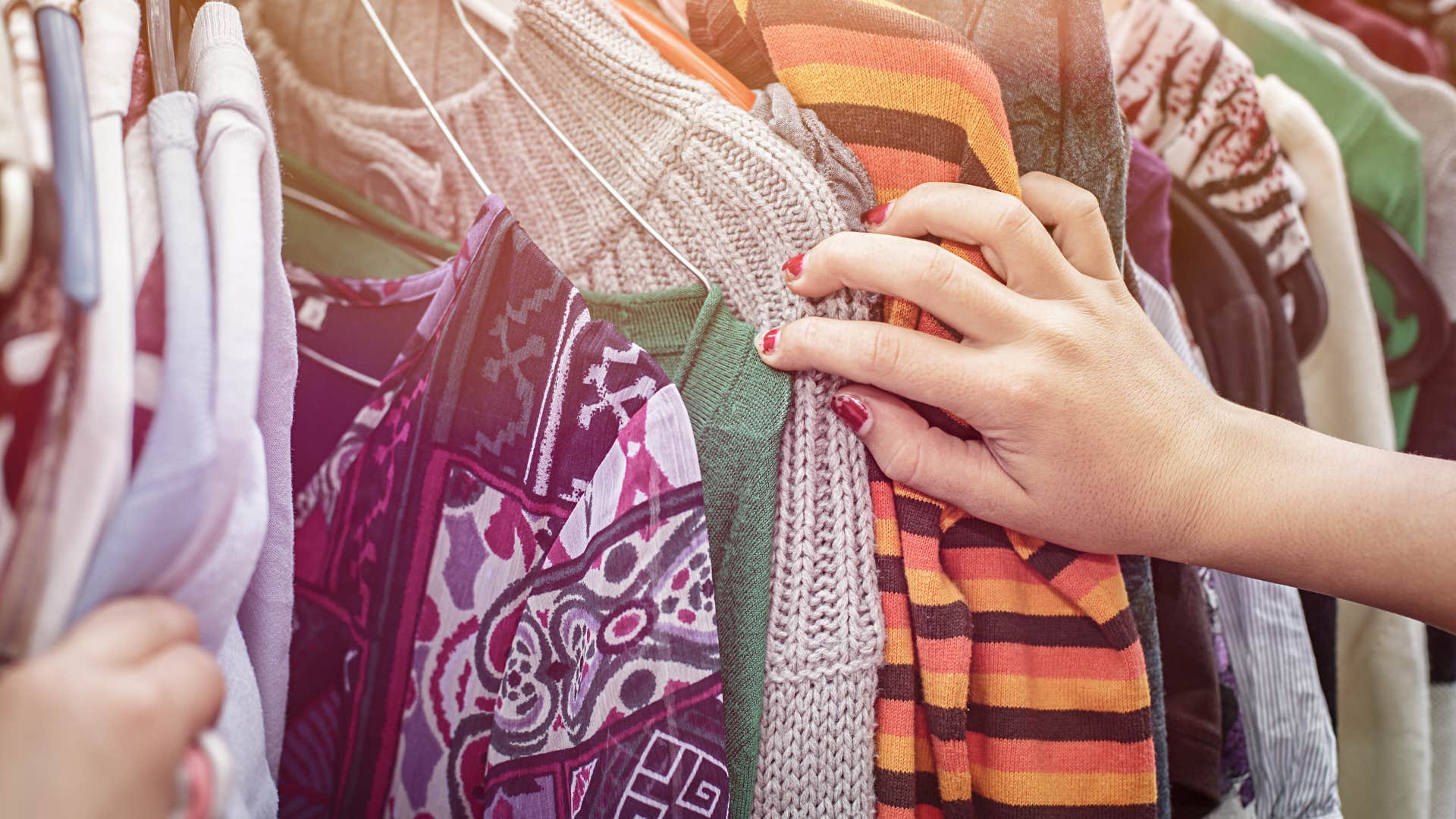 Armin Staudt / Shutterstock
Armin Staudt / Shutterstock
When someone has grown up having to be more frugal due to financial struggles, they will often have thrifted clothing in their home. As a response to the mindset of scarcity that sticks with them, they will choose to be more resourceful with their clothing, rather than throw out items that are still in good condition just to buy brand new things.
To be resourceful, they may not only wear thrifted clothing, but they might also use it to create other items like quilts or use it for cleaning purposes. If they were to throw out an item that they deep down know could still be used, they’d be left with a looming feeling of guilt because they would feel wasteful.
4. Old and functional shoes
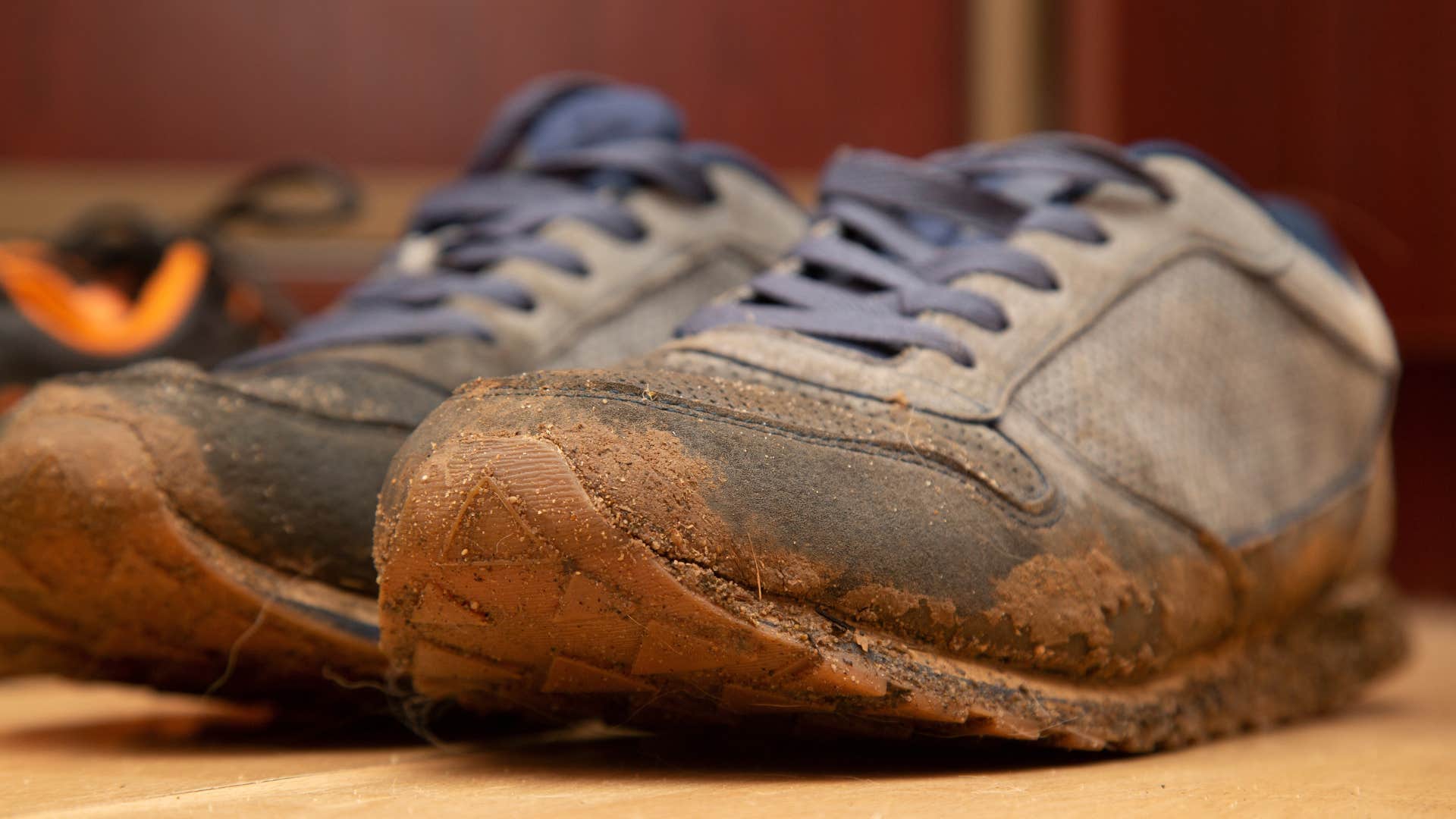 Potashev Aleksandr / Shutterstock
Potashev Aleksandr / Shutterstock
There is a scarcity and “just in case” mindset that develops in individuals who grew up in poverty. These mindsets cause them to keep things that could be used later rather than throwing them out if they are not currently being used.
They also aren’t mindsets that just disappear once an individual has achieved financial freedom. Instead, they linger and influence money habits like avoiding wasting anything and keeping unused items simply because they may be used again in the future.
5. Cans of food or bulk items
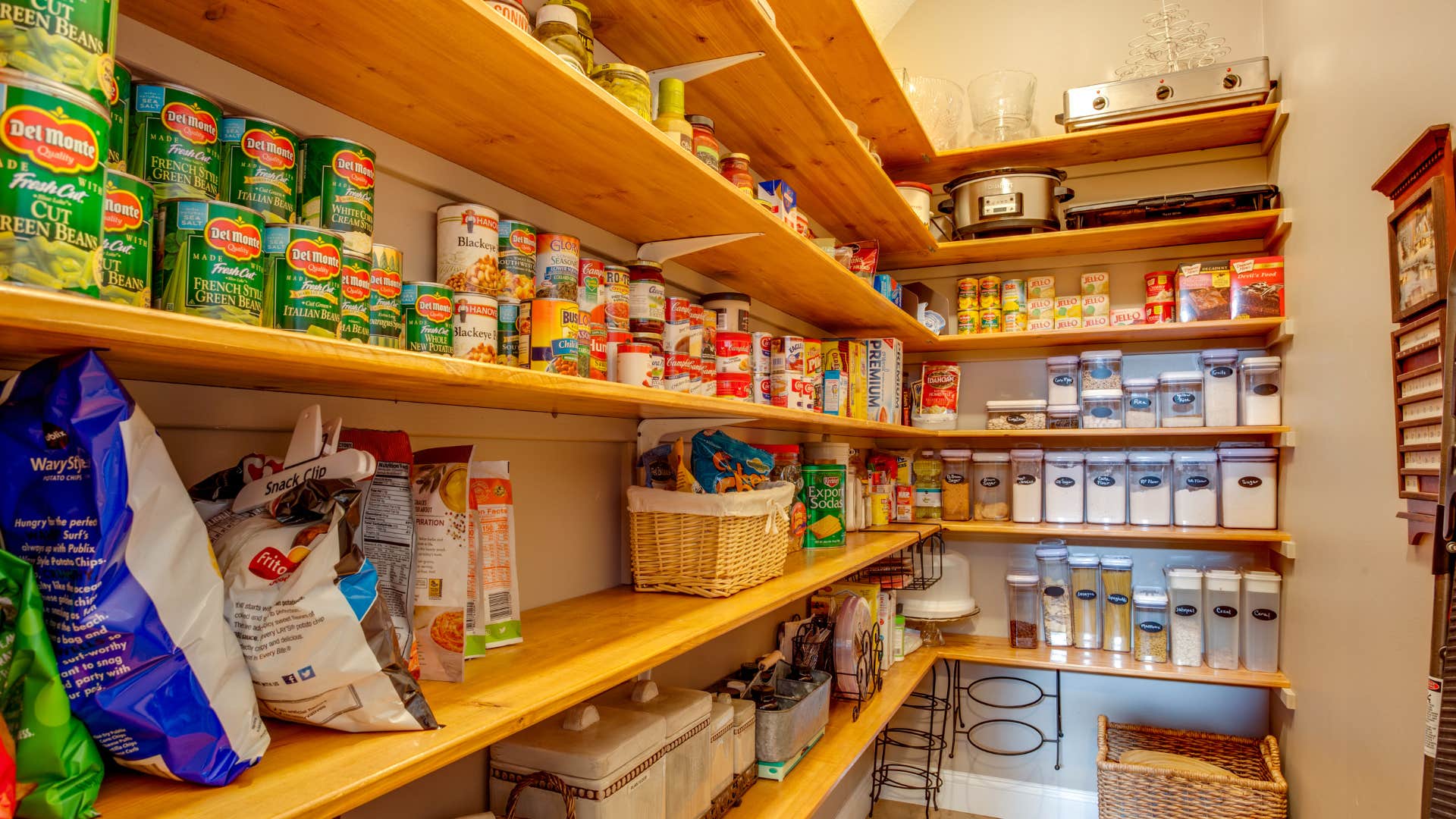 Pipas Imagery / Shutterstock
Pipas Imagery / Shutterstock
When an individual grows up struggling with money, they will most likely develop a response to the past trauma that comes in the form of hoarding. Having a fear of never having enough of the necessities will cause these individuals to buy in bulk and keep many non-perishable items to help combat potential scarcity.
At times, this may even lead to the person collecting so many food items that they end up expiring before the person can get around to using them. This is a sign that the person would rather have the items and they go bad than have to experience again what it was like not to have them when they need them.
6. Extra stashes of paper towels or toilet paper
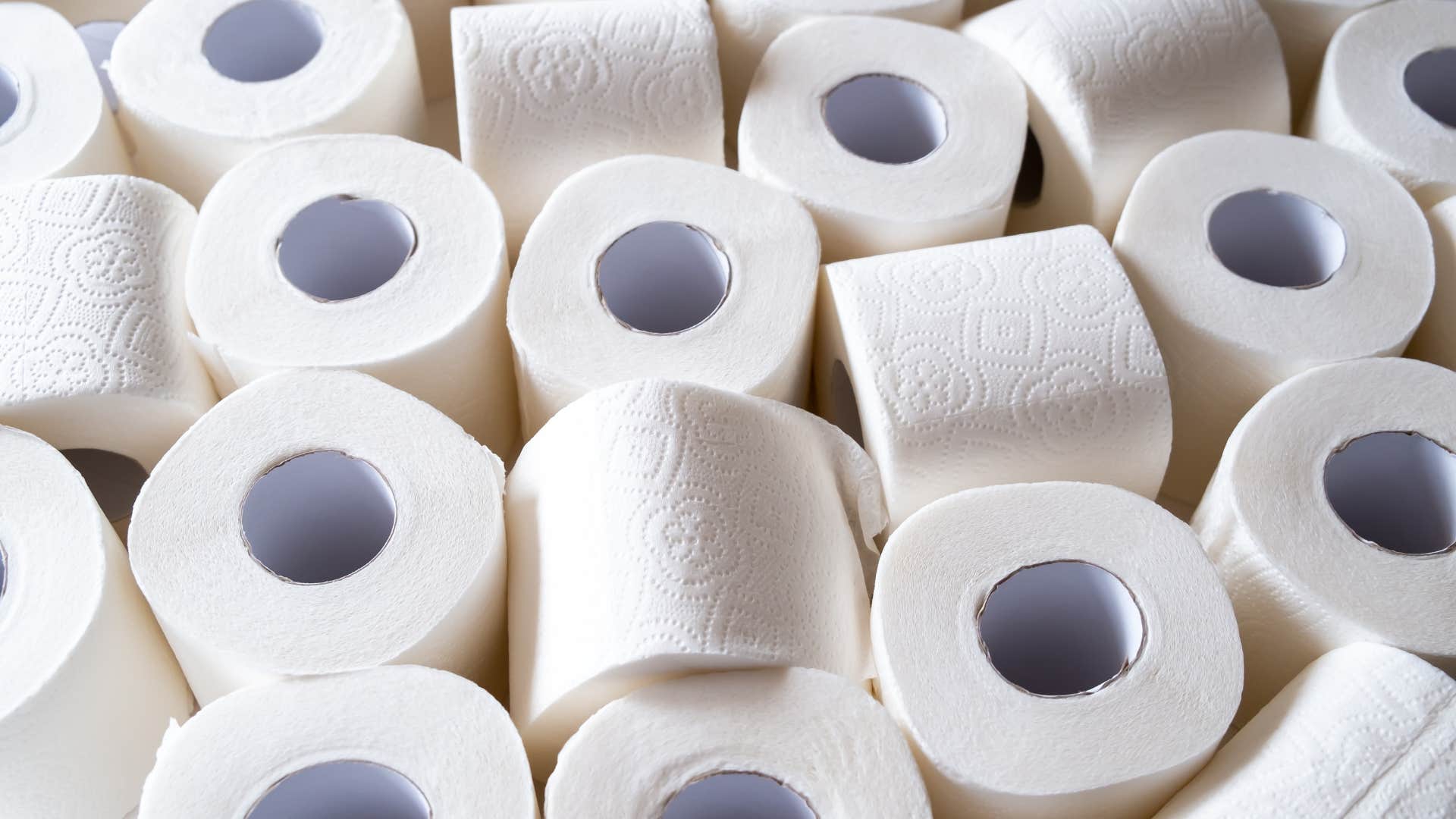 drsnaut / Shutterstock
drsnaut / Shutterstock
In order to feel a sense of security, people who have experienced poverty will keep a paper towel and toilet paper stash. Having stashes like this helps these individuals feel in control while they deal with their fear of scarcity.
Growing up in poverty causes individuals to have to struggle with a sense of loss constantly. By ensuring that the necessities are taken care of by buying them in bulk, these people get to experience the comfort of knowing that they do not have to fear coming home to a lack of things they need.
7. Old towels and sheets
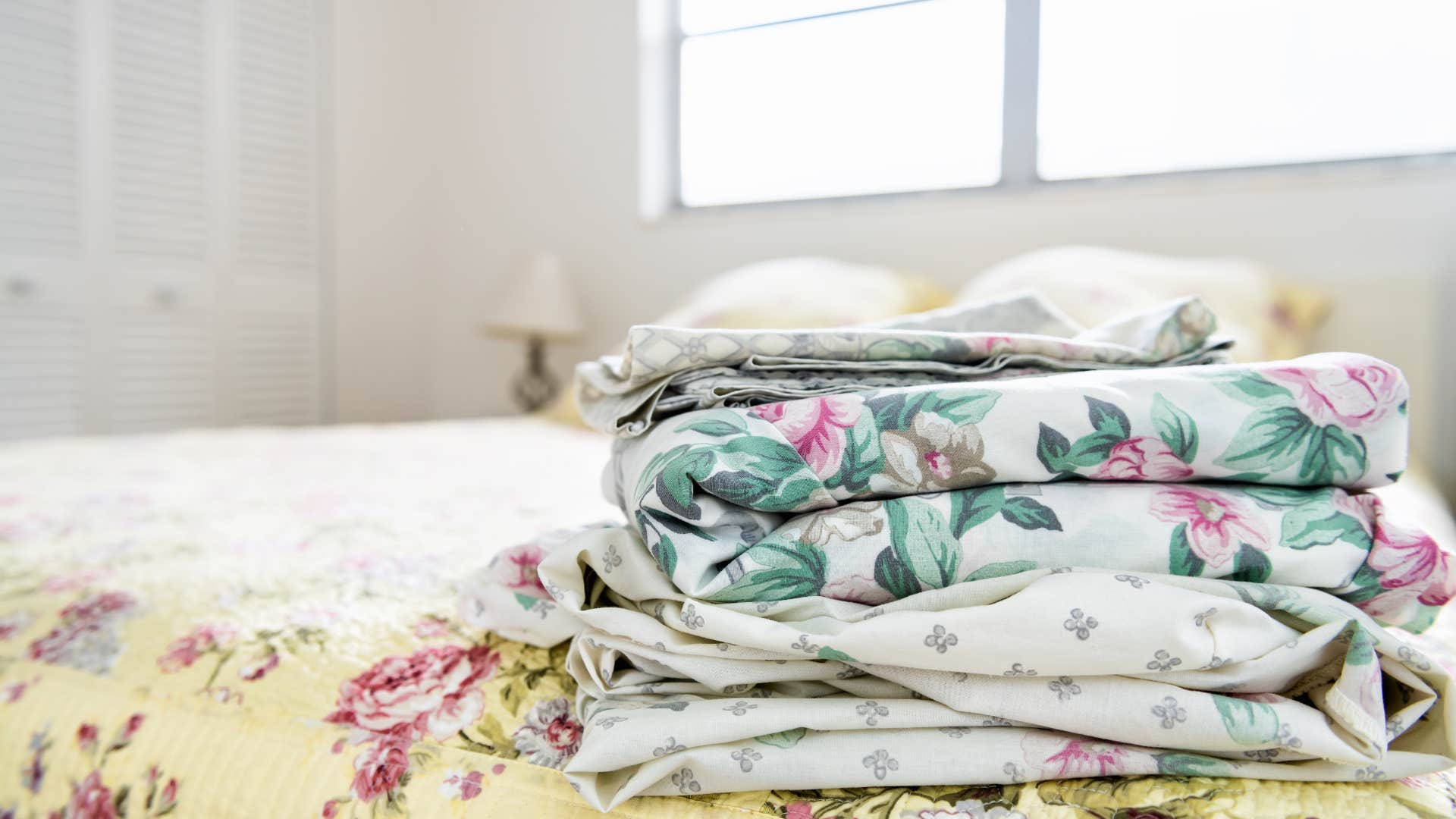 Andriy Blokhin / Shutterstock
Andriy Blokhin / Shutterstock
Most individuals who have experienced financial struggles throughout their childhood will never choose to replace old things, like towels and sheets, if they still deem them usable. They realize that even if the towels or sheets can no longer be used for their original purpose, they may still be used for something else, such as cleaning or insulation.
This resourceful mindset, along with having an aversion to being wasteful, is something that follows an individual who has experienced what it is like to have scarce resources even into their adulthood. Regardless of what their current financial situation looks like, their home is still sure to be filled with older items that could be replaced, yet they still haven't.
8. Duct tape and tools
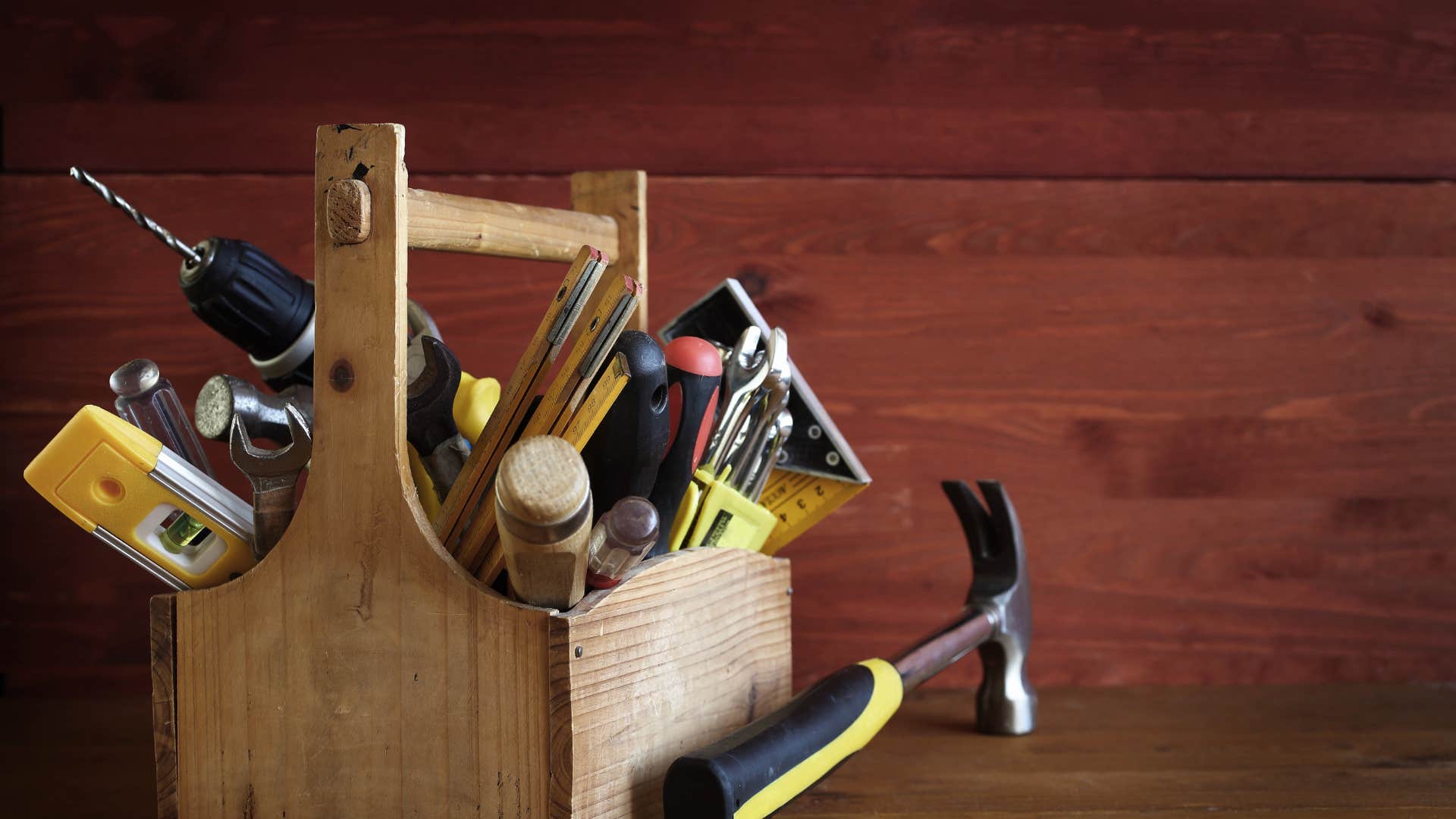 Alex Kosev / Shutterstock
Alex Kosev / Shutterstock
While in many households you may find duct tape and tools, someone who grew up with financial insecurity will intentionally have these items for resourceful purposes. Having limited resources while growing up will encourage the individual to develop a very creative mindset when it comes to finding new purposes for certain items.
They will use duct tape and tools to repair items rather than replace them in an attempt to save money. They will also be practical about the various ways they could potentially use a repaired item if it is no longer sufficient to use for what it was made for.
9. Outdated appliances
 Artazum / Shutterstock
Artazum / Shutterstock
The deeply rooted habits that form in someone who has a scarcity mindset, due to growing up without financial security, will most likely make them keep outdated appliances in their homes. When someone has grown up used to settling for outdated things because necessities become a priority over having the newest things, they take this habit with them into their adulthood.
While the outdated appliances may no longer be aesthetically pleasing and may not have all the abilities of something newer, they still are functional and get the job done. Someone who has grown up with little money would decide it is better to stick with the outdated appliance than to waste money and replace it.
10. Old electronics
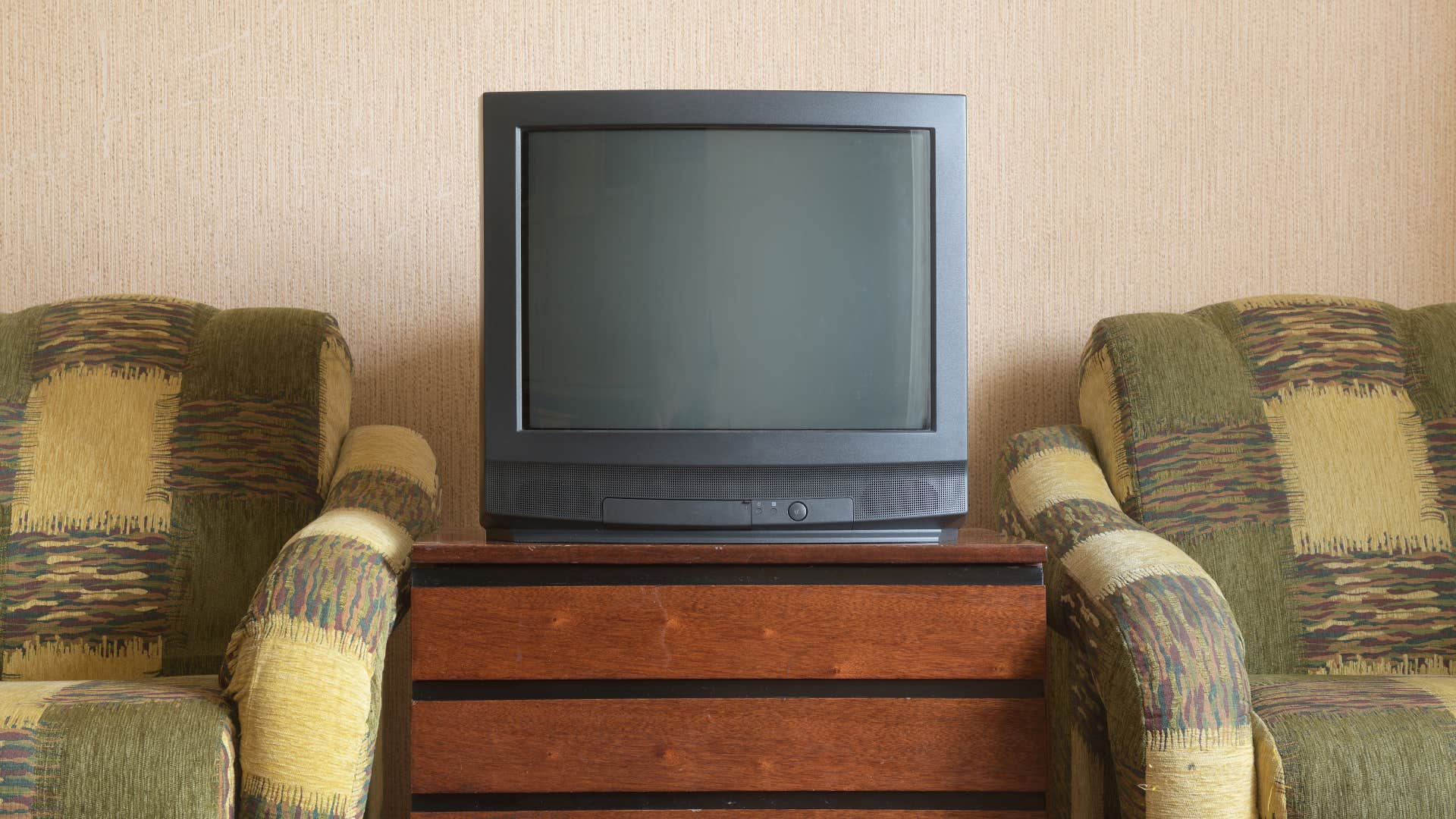 LIAL / Shutterstock
LIAL / Shutterstock
If someone has grown up struggling financially, their current home will most likely be filled with older electronics. The financial mindset they have adopted due to their childhood will enforce an aversion to spending within them.
Before making a purchase, they ask themselves whether or not they really need something. Something like the newest technology and electronics would most likely be something that they would deem as a want rather than a need, and therefore, they would decide that spending money on it would be irresponsible.
11. Hand-me-downs
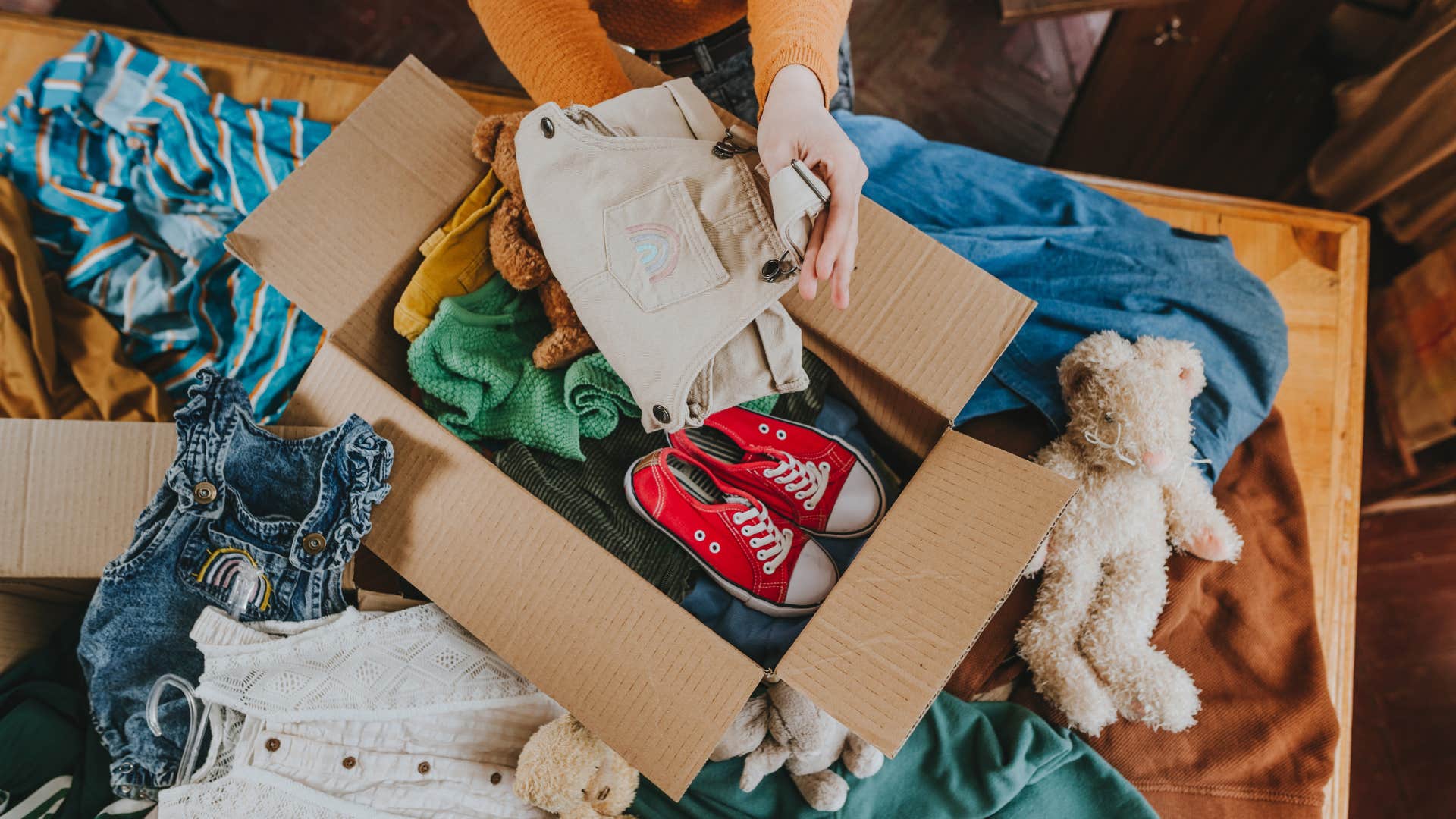 Lithiumphoto / Shutterstock
Lithiumphoto / Shutterstock
Hand-me-down culture is a significant way most people who grew up with financial insecurity will obtain some of the items they need. For them, this is the most economical way of acquiring necessities, like clothes or used cars. This also aligns with their views on resourcefulness and their aim to reduce waste.
The psychological patterns, like being resourceful and having an aversion to spending and being wasteful due to having a scarcity mindset, are common habits that will follow individuals who grew up without a lot of money into their adulthood. While these habits are not a reflection of the current financial status of the individual, they can provide insight into what their childhood looked like and how it shaped their financial outlook as an adult.
Kamryn Idol is a writer with a bachelor's degree in media and journalism who covers lifestyle, relationship, family, and wellness topics.

